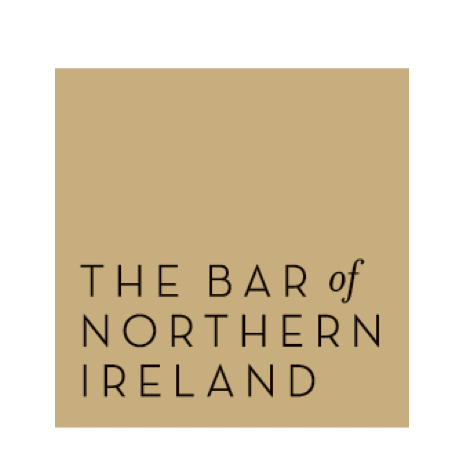Seizing opportunities to enshrine access to justice and the rule of law

Chief Executive of the Bar of Northern Ireland, David Mulholland, outlines the role of the barrister profession in advocating for access to justice and the importance of the rule of law.
The Bar of Northern Ireland comprises over 650 self-employed barristers in independent practice.
Serving the public interest, without fear or favour, barristers draw on their expert knowledge of the law, advocacy, and litigation to represent the best interests of clients. As independent experts, our barristers practice across all areas of law in all courts and tribunals in Northern Ireland, the Republic of Ireland and Great Britain.
Increasingly, barristers act in cases outside the conventional courtroom setting such as alternative dispute resolution, arbitrations, tribunals, and a broad spectrum of public and private inquiries.
A system under pressure
Barristers are expert and dedicated legal professionals. From their unique position at the frontline of representing clients in complex and important legal matters, they witness and experience a justice system under significant pressure.
Waiting lists for court appearances have reached chronic proportions. There is real concern that many across society will experience the reality that justice delayed is justice denied.
Although there is a general awareness that the system should therefore be reviewed and improvements sought, care must be taken when doing so. Any review must focus on the right areas and protect access to justice and the rights of all involved.
“Justice must be done and be seen to be done. It must not be a distant, compromised, or a remote experience for those involved in complex cases.”
Technology has improved the efficient disposal of straightforward matters and has a role to play. However, the use of technology in this way must always be measured and appropriate. And technology is not a panacea.
Justice must be done and be seen to be done. It must not be a distant, compromised, or a remote experience for those involved in complex cases.

Access to justice
Access to justice is a fundamental principle of the rule of law which protects society’s most vulnerable and enables citizens to effectively exercise their rights. Our courts must be accessible to all, not simply because individual parties in a dispute can afford it or are somehow considered to deserve the benefit.
For too long the legal aid conversation in Northern Ireland has focused on cost. This has overlooked the wider societal and economic benefits brought about by appropriate investment in our justice system.
Rather than adopting a narrow focus on cost alone, overlooking the human value of those requiring help to face legal issues, local policy makers should observe how other jurisdictions have analysed the social benefits and public expenditure savings that are derived by investing in legal aid.
Building on conclusions that had previously been published by the World Bank, PwC conducted research in Australia which in 2023 concluded that:
• for every dollar spent on legal aid the state received 2.5 times as much in public expenditure benefits; and
• in addition, a host of non-quantifiable benefits were also delivered, and costs avoided.
Given the fiscal and public service challenges faced by Northern Ireland, it would be an act of gross negligence to spurn proven opportunities to harvest these same benefits in this jurisdiction.

Policy warnings
As a jurisdiction, we can look to England and Wales for evidence of the impact of the implementation of policies that are still being developed and considered here.
JUSTICE is a cross-party law reform and human rights organisation working to strengthen the justice system in the United Kingdom. In its September 2023 report, JUSTICE found that recent developments within the UK have been “corrosive to the rule of law”.
The examples provided to support this conclusion included cuts to legal aid which have decimated universal access to justice and left victims, witnesses, small businesses waiting months if not years for a trial.
In recent days, the Chair of the Bar Council of England and Wales has highlighted that the criminal and family justice systems are at the point of structural failure. He called for urgent and significant investment, warning that: “…what we are witnessing is a breakdown in the compact essential to any effective criminal justice system governed by the rule of law”.
Opportunity for Northern Ireland
The Bar of Northern Ireland is a profession which upholds the rule of law and advocates for access to justice. Our members play an important role in supporting the economic and social wellbeing of the jurisdiction and unlocking potential problems and difficulties.
Through regular engagement with our local politicians and Stormont departments we are advocating for a positive, proud, and strategic vision for the justice sector in Northern Ireland.
Where necessary we will take direct action in support of these aims.
It is incumbent upon our local policy makers to heed the warnings, lessons, and research available from neighbouring jurisdictions and seize the opportunity presented by investment in the justice sector.
Doing so will enhance the economic prospects and public services available to people living in this jurisdiction.
Legal aid is a means to address deserving and fundamental matters of real human concern that impact across all communities and that have far reaching societal and economic impact if not properly addressed.
There must be a strategic direction for legal aid policy to ensure that it is properly recognised as an indispensable part of our justice system, an integrated part of our social welfare provision and a key component of embedding the rule of law.

The Bar Library
91 Chichester St, Belfast BT1 3JQ
T: +44(0) 28 9024 1523
E: contact@barlibrary.com
W: www.barofni.com
DX 002 NR Belfast
X: @TheBarofNI
The Bar of Northern Ireland





